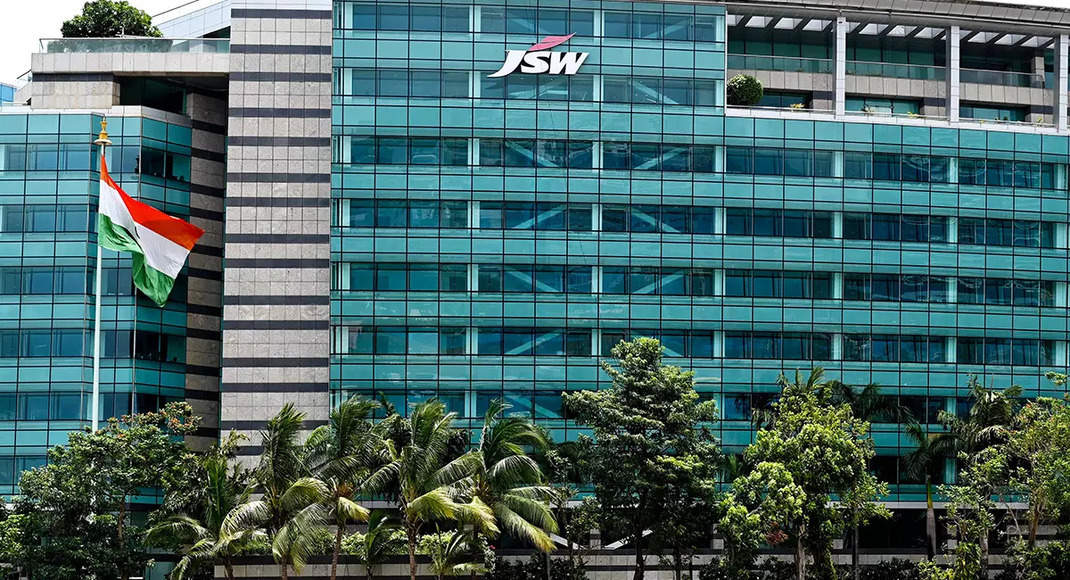JSW Group, a diversified Indian business conglomerate in steel, mining, energy, infrastructure, and software, is prioritizing decarbonisation to reduce its environmental impact. The company, led by Sajjan Jindal, does not have a specific target year to achieve net-zero emissions, unlike its competitors. Instead, it has a 2030 decarbonisation roadmap that focuses on key areas such as renewable energy, circularity, process efficiencies, and a sustainability-linked remuneration system for its employees. By leveraging technological breakthroughs, JSW Group aims to gradually reduce its carbon footprint.
In 1982, Sajjan Jindal joined his father, Om Prakash Jindal, in the family business after graduating in mechanical engineering from Bangalore University. Within a year, he was entrusted with the task of turning around operations at two facilities near Mumbai. Over the years, Sajjan Jindal’s leadership transformed the company into a USD12 billion infrastructure conglomerate – the JSW Group. Today, Sajjan Jindal leads the group towards sustainable practices.
Unlike its competitors, the JSW Group has opted not to set a specific target year for achieving net-zero emissions. Instead, the company has developed a 2030 decarbonisation roadmap that outlines various strategies to reduce its carbon footprint. This includes a focus on renewable energy sources, circularity, improving process efficiencies, and implementing a sustainability-linked remuneration system.
Renewable energy plays a crucial role in the decarbonisation roadmap of JSW Group. The company aims to increase its dependence on renewable energy sources, such as solar and wind power, to power its operations. By integrating renewable energy into its operations, JSW Group not only reduces its carbon emissions but also reduces its reliance on fossil fuels. This shift towards renewable energy aligns with the company’s commitment to sustainability and aligning its operations with global environmental goals.
Circularity is another key aspect of the decarbonisation roadmap of JSW Group. The company aims to promote circular economy practices, which involve reducing waste, reusing materials, and recycling resources. By implementing circularity principles, JSW Group can minimize its environmental impact and optimize resource utilization.
Process efficiencies are essential for reducing carbon emissions throughout the value chain. JSW Group plans to identify and implement process improvements across its operations to increase energy efficiency and reduce waste. These initiatives not only help in reducing the company’s carbon footprint but also improve its overall operational efficiency.
To incentivize and motivate employees towards sustainability goals, JSW Group has introduced a sustainability-linked remuneration system. This system aligns employee compensation with the company’s sustainability performance, creating a direct link between individual efforts and collective sustainability outcomes. By rewarding employees for their contributions to sustainability, JSW Group fosters a culture of environmental responsibility and drives continuous improvement.
JSW Group recognizes that achieving its decarbonisation goals requires technological breakthroughs. The company is actively investing in research and development to identify and adopt innovative technologies that can help reduce its carbon footprint. These technologies could include advanced manufacturing processes, carbon capture and storage, and other clean energy solutions. By leveraging technology, JSW Group aims to make significant progress in its decarbonisation journey.
In conclusion, JSW Group, an Indian business conglomerate, is committed to decarbonisation and reducing its carbon footprint. Unlike its competitors, the company has chosen not to have a specific target year for achieving net-zero emissions. Instead, it has developed a 2030 decarbonisation roadmap that focuses on renewable energy, circularity, process efficiencies, and sustainability-linked remuneration. By embracing technological breakthroughs and implementing sustainable practices, JSW Group aims to gradually reduce its environmental impact and contribute to a greener and more sustainable future.









